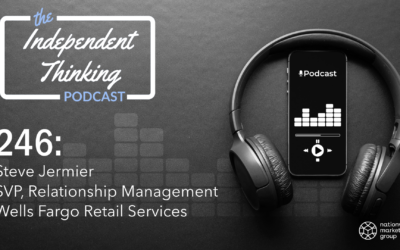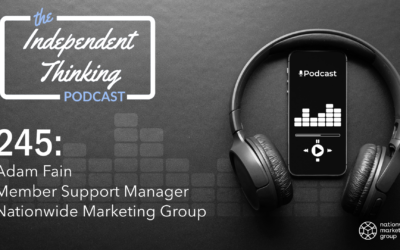Conversations around the topic of succession planning with Independent retailers are often extremely cliché filled. You’re told that there’s no better time than the present to start thinking about succession planning. It’s a great way to build talent from within, ensure the lasting legacy of all the hard work you poured into your business and brand. It helps ensure what you built will last for generations. The sayings could fill a dictionary-sized book
That said, succession planning is not something that a majority of small businesses or small business owners put a lot of thought into. According to a Wilmington Trust study, nearly 60% of small businesses lack a continuity or transition plan, with nearly half of those businesses saying they didn’t think having one was necessary. Refusing to plan for the future is probably why we see only half of all family-owned businesses survive the handoff from the first to second generation. And only one-third of those businesses will make it to the third generation.
For some, maybe passing down your retail business to someone in the family isn’t necessarily of interest. There are other methods of succession to consider. Either way, short of being forced into a decision under duress — or, worse, forcing others to make that decision on your behalf because of an untimely incident — those plans can’t be made without first formulating a solid succession strategy.
Joe Milevsky, CEO and Founder of JRM Sales and Management, has a long history of helping family-owned businesses of all shapes and sizes navigate those waters. We recently featured Milevsky on the Independent Thinking Podcast where he spoke to the process of crafting a succession plan, along with the advantages and challenges that business owners face.
Independent Thinking: What is it about the topic of succession planning that makes it such a difficult thing to talk about?
Milevsky: There’s really two major fears. One of those fears is the sense of a loss of control. The thought that “somebody else is going to take over, this is my baby. I’m the one that started this thing, and I can’t make decisions anymore.” It’s also the fear of facing the inevitable. We know there are two things that are inevitable, death and taxes, right? But we don’t seem to want to face them. We may be able to face taxes with a good CPA, but the other part is very, very difficult. So, it’s just not something that people want to deal with.
IT: We know that a majority of small business owners don’t have a succession plan in place. So where do they even begin to have those conversations, as difficult as they may be?
Milevsky: It’s going to take a team of people, but it starts with bringing in somebody from the outside, somebody that’s objective. When you’re right in the middle of this, and you have your heart and soul in something that you yourself have built, it’s very difficult to see the forest for the trees. You also need a good CPA and a good, experienced estate planning attorney. I’d also consider getting involved with a financial planner, somebody who this is what they do for a living, just to get their input advice. You don’t have to listen; you don’t have to do what they tell you. But you get those objective viewpoints to get you going in the right direction.
IT: What are some of the most common mistakes or obstacles Independent businesses face when it comes to succession planning?
Milevsky: This relates to that unwillingness to face the inevitable — leaving that upcoming generation, or whoever is deemed the successor, unprepared to eventually take over the business. But there’s nothing in place at all to help that next generation develop their skillset. They have no exposure to a financial statement. They have no idea how the business is doing. They don’t have to be necessarily the best at everything, but they need to be able to understand everything. Give them the opportunity to make decisions and — most importantly — fail from time to time so they can learn what went wrong so they can grow and learn in their role.
IT: Is it ever “too late” to start thinking about succession planning?
Milevsky: I’ve had clients where their financial situations were so dire that the best decision for them was to just close shop and find something new — so, yes, there are times when it’s too late. But in most cases, that’s not true. It’s just a matter of really stepping up. Even if it’s, God forbid, a situation where somebody tells you that you only have a few months to live, at least gain control now, get all this stuff in order, because it’s going to save your family so much stress at the end. It can dramatically increase the probability of a successful transition to keep your business going.




